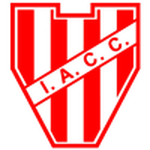| Coach | NA |
| Venue | Estadio Juan Domingo Perón |
Instituto Cordoba Trivia
Instituto Cordoba predictions
Predictions for Instituto Cordoba: See upcoming and historic predictions for Instituto Cordoba below.
Disclaimer: Past performance does not guarantee future results. Betting involves risk; only wager what you can afford to lose. Always gamble responsibly.
Instituto Cordoba Opinions
 Who is the greatest player in the history of Instituto Cordoba?
Who is the greatest player in the history of Instituto Cordoba?
Instituto Cordoba latest results
| 18/11 | - | ||
| 11/11 | 0 - 0 | ||
| 04/11 | 1 - 2 | ||
| 28/10 | 0 - 1 | ||
| 21/10 | 0 - 0 |
Instituto Cordoba latest transfers
| Date | Player | From | To | Price |
|---|---|---|---|---|
| 2023-08-30 | D. Reasco | Newells Old Boys | Instituto Cordoba | € N/A |
| 2022-01-20 | R. Garro | Instituto Cordoba | Talleres Cordoba | € 310K |
| 2022-01-17 | M. Braida | Instituto Cordoba | San Lorenzo | € 440K |
| 2020-10-05 | M. Bajamich | Instituto Cordoba | Houston Dynamo | € 1M |
| 2019-07-01 | M. Klimowicz | Instituto Cordoba | VfB Stuttgart | € 1.5M |
| 2018-01-01 | G. Mainero | Instituto Cordoba | Velez Sarsfield | € 415K |
| 2016-08-05 | M. García | Instituto Cordoba | Las Palmas | € 400K |
| 2016-07-15 | M. Correa | Instituto Cordoba | Godoy Cruz | € 245K |
| 2016-07-06 | Cristian Oscar Bernardi | Instituto Cordoba | Colon Santa Fe | € 100K |
| 2016-01-01 | G. Maroni | Instituto Cordoba | Boca Juniors | € 650K |
About Instituto Cordoba
Instituto Atlético Central Córdoba, commonly known as Instituto Cordoba, is a renowned football club based in Córdoba, Argentina. Founded on August 8, 1918, the club has a rich history spanning over a century, marked by notable achievements and contributions to Argentine football.
The club's roots are deeply embedded in the working-class neighborhood of Alta Córdoba, where it was established by a group of railway workers. Instituto Cordoba's home ground, Estadio Presidente Perón, is a testament to its enduring legacy, with a capacity of over 28,000 spectators.
Instituto Cordoba is known for its iconic colors, red and white, which are prominently displayed in its emblem and uniforms. The club's nickname, "La Gloria," translates to "The Glory," reflecting its aspirational spirit and commitment to excellence.
Throughout its history, Instituto Cordoba has competed in various divisions of Argentine football, including the Primera División, the country's top-tier league. The club has had several successful runs in these leagues, with its most notable achievement being the 1986-87 second division championship, which led to its promotion to the Primera División.
Instituto Cordoba's youth academy is one of its most significant assets, known for producing high-quality players who have gone on to have successful careers both domestically and internationally. The club's commitment to nurturing young talent is evident in its state-of-the-art training facilities and comprehensive development programs.
The club has produced several notable players, including Osvaldo Ardiles and Mario Kempes, who were part of the Argentina national team that won the 1978 World Cup. More recently, Paulo Dybala, a forward for Juventus and the Argentina national team, began his career at Instituto Cordoba.
Instituto Cordoba's impact extends beyond the football field. The club is an integral part of the local community, with numerous social and cultural initiatives aimed at promoting sportsmanship, inclusivity, and community engagement. The club's social responsibility programs focus on education, health, and social inclusion, reflecting its commitment to making a positive impact on society.
Despite the challenges and competition, Instituto Cordoba has remained resilient, continually striving for success and upholding its values of teamwork, integrity, and excellence. The club's rich history, commitment to youth development, and community engagement make it a significant entity in Argentine football.
Instituto Cordoba's journey is a testament to its enduring spirit and passion for football. As the club looks to the future, it remains committed to its roots, nurturing the next generation of football stars, and contributing to the local community. Instituto Cordoba is not just a football club; it is a symbol of pride, unity, and resilience for its fans and the city of Córdoba.















